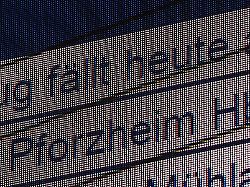“A Disastrous Record”
More than 40,000 trains were canceled without replacement in 2022
05/14/2023, 12:05 p.m
Figures from the Federal Ministry of Transport show how reliably Deutsche Bahn rolled last year: almost 5,000 long-distance trains were canceled – in regional transport there were around 37,000. But not only with the trains, there were also problems in other parts of the rail network.
The warning strike by the railway and transport union (EVG) was averted, but train cancellations remain a problem for Deutsche Bahn. Because the railway has disruptions and failures not only during the strikes, but also in regular operation. Of the around 1,600 daily long-distance trains operated by Deutsche Bahn such as ICEs, Intercity trains and Eurocity trains, an average of 0.8 percent failed without replacement last year due to technical defects in the traction units, a total of around 4,700 trains. In regional traffic there were around 37,000 trains, which corresponds to around 0.5 percent.
The figures come from a response from the Federal Ministry of Transport to a request from several members of the Bundestag from the Left Party, which the “Stern” has received. “More than 80,000 disruptions in one year are unacceptable,” left-wing member of the Bundestag Bernd Riexinger commented on the ministry information to Stern. “This is a catastrophic result of decades of misguided transport policy.”
According to the response from the Ministry of Transport, significant deficiencies were not only revealed in rolling stock in 2022. Broken points, signals or level crossings also repeatedly caused disruptions to railway operations. Bahn employees had to take care of signal fault reports 17,300 times, switch faults 34,000 times and level crossing faults 32,000 times. Almost 250 times a day something between Westerland and Berchtesgaden in the German rail network is not running as it should – with corresponding consequences for the punctuality and reliability of the trains in Germany.
